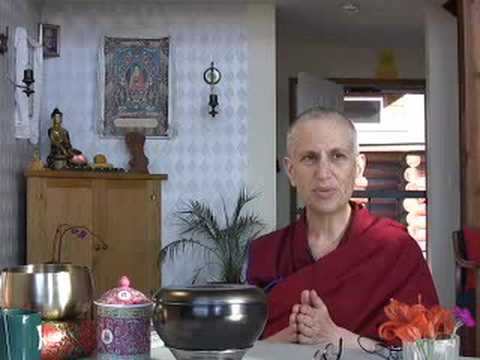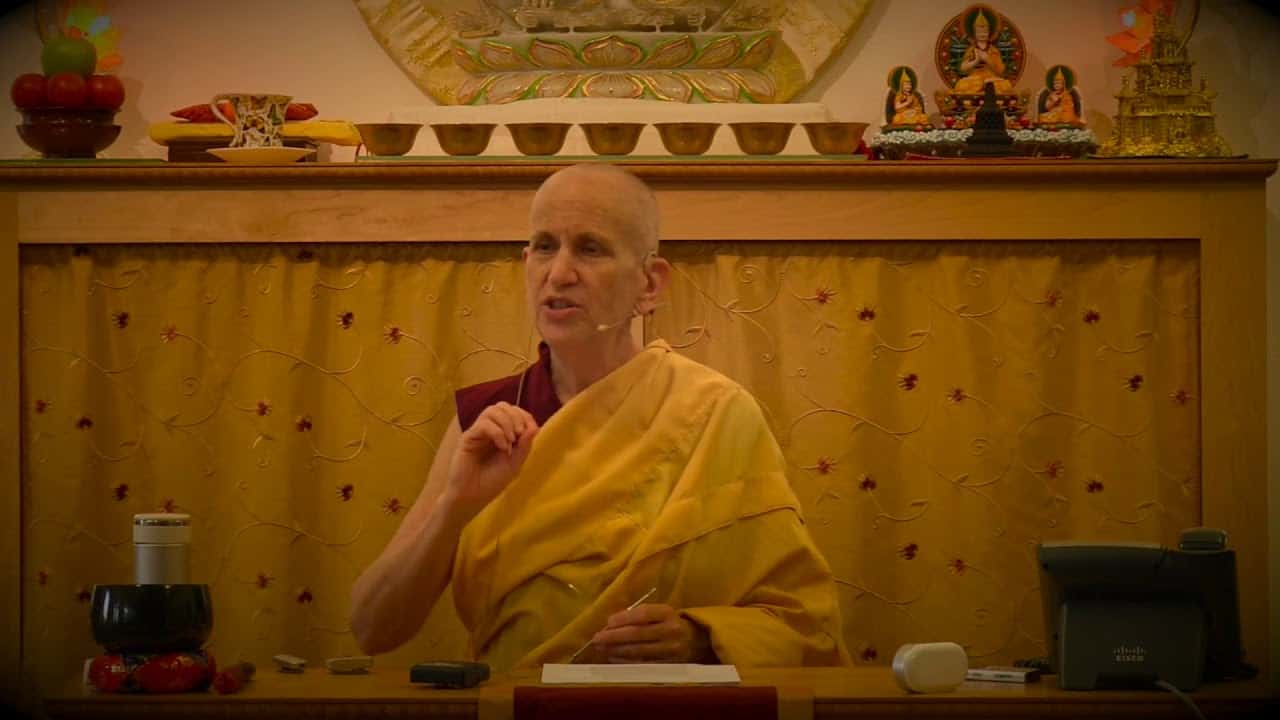General advice for Dharma practice
This video series is designed for newcomers to Buddhism, exploring themes like reflecting on the purpose and meaning of our precious human life, giving ourselves time and space to integrate Buddhist teachings into our lives, and remembering the central task of developing a kind heart. Tips on sustaining a practice, approaching mental transformation on and off the cushion, and taking note of progress in our practice are provided. “Being Your Own Best Friend: Cultivating a Healthy Sense of Self” is also helpful for non-Buddhists.
Advice for Dharma practice
-
Beginners on the path
It’s easy to get confused over the different stages of the path, but as the Dalai Lama says, developing a kind heart towards oneself and others is what’s most important. Learning the Buddha’s teachings involves many different components, and we need to learn how to balance all of them without pushing ourselves to master everything right away. We need to give ourselves time to think about things and integrate them into our daily lives, like learning the difference between self-indulgence and self-compassion.
-
Practicing the Dharma = Transforming the mind
Practicing the Dharma means identifying wrong views at the conventional level and counteracting them with wisdom and compassion. Transforming the mind can be difficult and won’t happen quickly because we have a lot of old habits, one of which is saying we can’t transform our mind. The mind of discouragement is actually a mind of laziness because then we don’t practice. We must learn to recognize an incorrect thought instead of following it.
-
Transforming the mind
Venerable Chodron talks about how doing things we initially don’t want to do provides an attitude that will help us transform our minds in our Dharma practice. By pulling ourselves out of stubborn, resistant states of mind, we may enjoy doing things that we never liked before.
https://youtu.be/aKUiEdSA3WQ
-
Sustaining a practice
It’s important to keep ourselves motivated and stick to a regular practice. Setting up an altar, practicing with a group, or finding a teacher can help. Also, watch Abbey teachings online or sign up for a Sravasti Abbey Friends Education (SAFE) course. Attend retreats your teacher is leading to deepen your connection with him or her and do a daily purification practice like Vajrasattva or 35 Buddhas Confession. We have to remember the benefits of practicing the Dharma and our successes so far.
-
Sticking to one tradition
One can bring Buddhist meditations on metta, patience, and compassion into the practice of other religions, but one should be clear about philosophical differences.
-
Practicing Dharma
Venerable Jampel talks about how practicing the Dharma means working to change the way we look at and think about the world, transforming the mind to be more peaceful, kind, and beneficial to ourselves and others. The change may seem slow, but the benefits are always accumulating. We miss the real benefits of practice if we chase after instant results.
-
What to practice
Many guests leaving the Abbey after a retreat ask how they should continue their practice at home. We recommend doing whatever they did here, keeping the same precepts and discipline, and possibly the same meditation schedule.
https://youtu.be/GO_f1dyUpeI
-
The Dharma actually works!
Venerable Chodron gives tips on how to notice progress in our practice, such as comparing ourselves with what we were like five or ten years ago. How we react to everyday events really shows the force of our practice. Aspire to holistic training that combines offering service, study, meditation, and other practices.
Being your own best friend: Cultivating a healthy sense of self
Venerable Chodron provides tips on befriending ourselves. Slowing down and becoming aware of what we’re thinking and feeling is key. We learn to let go of the self-critical mind that always compares us with others and instead cultivate contentment, satisfaction, and acceptance. The Dalai Lama has talked about compassion and concern for others as a way to overcome our unhealthy focus on ourselves and our happiness, which only makes us miserable and exhausted. The Q&A session includes insightful discussions on the notion of an independent self as the root source of suffering and the importance of developing our own values and principles instead of relying on other people’s opinions.
Sravasti Abbey Monastics
The monastics of Sravasti Abbey endeavor to live generously through dedicating their lives to the Buddha's teachings, practicing them earnestly, and offering them to others. They live simply, as the Buddha did, and offer a model for society at large, showing that ethical discipline contributes to a morally grounded society. Through actively developing their own qualities of loving-kindness, compassion, and wisdom, the monastics aspire to make Sravasti Abbey a beacon for peace in our conflict-torn world. Learn more about monastic life here...


